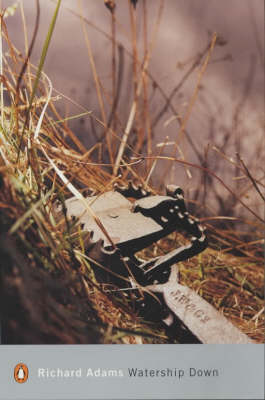Reviewed by teachergorman on
One of the things that struck me was Richard Adams’ insistence that the book is not an allegory for any human events. I think he’s being totally honest that he didn’t intend for any allegory, but that doesn’t mean that one doesn’t exist. Perhaps it’s a testament to the human need to create stories, just as the rabbits of Watership Down tell one another stories (beautiful stories interspersed throughout the book), that we connect this story to our own experience whether the author intends for us to do so or not. When General Woundwart, the leader of the opposing warren, comes to Watership Down and rejects the offer of peace out of fear and obsession, I couldn’t help but think of times I’ve made similar (though less deadly) blunders based on pride and a need to save face. I also thought of all the human wars started due to the same base motives. It’s not comfortable to discover a connection between my own failed attempts to maintain control in situations where I should have sought a win-win and times when whole nations flung themselves at one another because leaders made the same blunders on catastrophic scales, but that’s just the kind of connection that these non-allegory epic tales of adventure can produce if we are willing to let them.
I won’t spoil the ending here in a public forum. Suffice it to say that it was entirely satisfactory in that it resolved all the issues but made me wish Hazel, Fiver, and Bigwig could get caught up in another series of adventures so that I could spend more time with them.
The writing is masterful. It’s always difficult to know how much to describe the natural world in a human story, and too often writers allow themselves to wax on and on about the movements of clouds and the play of sunlight through leaves fluttering in the wind without any thought to the fact that the human characters in the story don’t give a flying photon, and thus the readers don’t either. In general, these are prime examples of the darlings that must be killed. But in Watership Down, the descriptions of the natural world are direct products of the characters’ interests and their immediate sensory impressions. Just as a description of the direction of the wind is entirely relevant in a story about sailing ships, a description of scents on a breeze really matters in this book because it matters to the rabbits. That’s a good reminder for writers; if the reader cares about the characters, he/she will care about what the characters care about. But if you spend too much time on trivialities that are unimportant to the characters, the reader will not only lose interest in the story, but may cease to like the characters, too. I’ll be giving that more thought as I revise thanks to this novel.
Do not continue to make the mistake I made for so many years. Grab a copy of Watership Down posthaste.
…after you get a copy of The Sum of Our Gods, of course.
Reading updates
- Started reading
- 24 March, 2014: Finished reading
- 24 March, 2014: Reviewed
